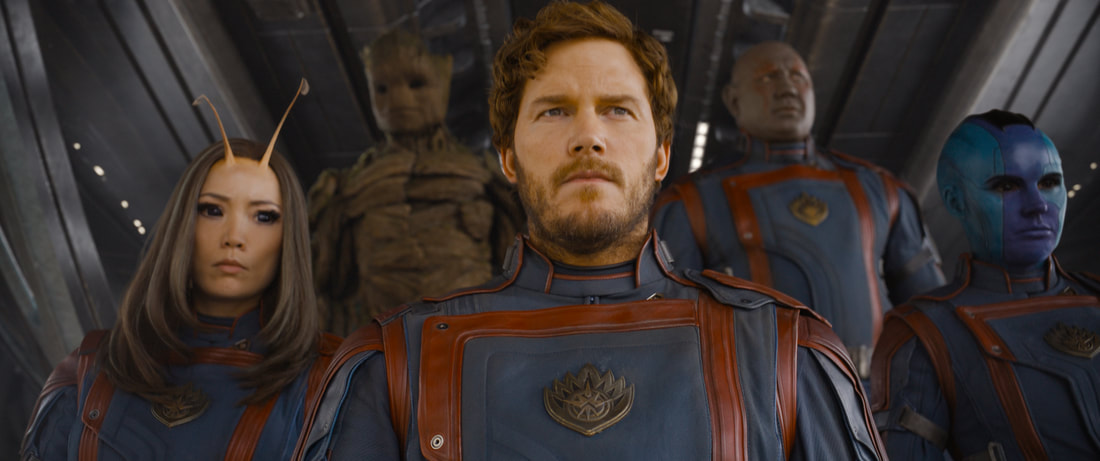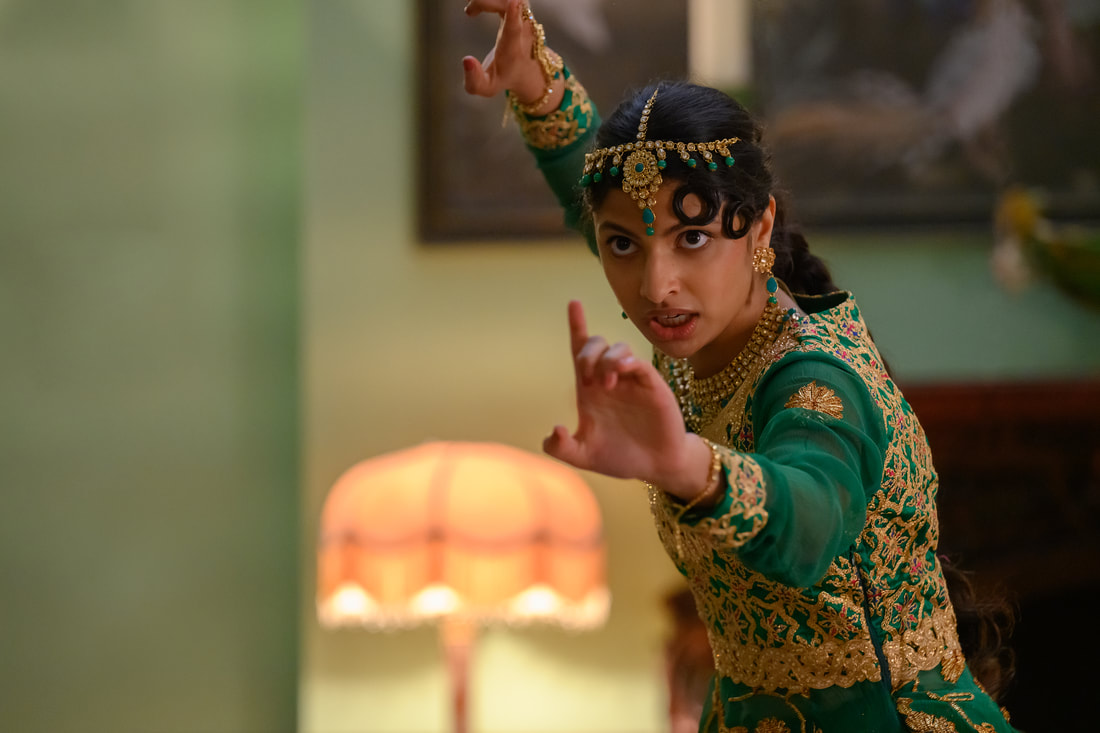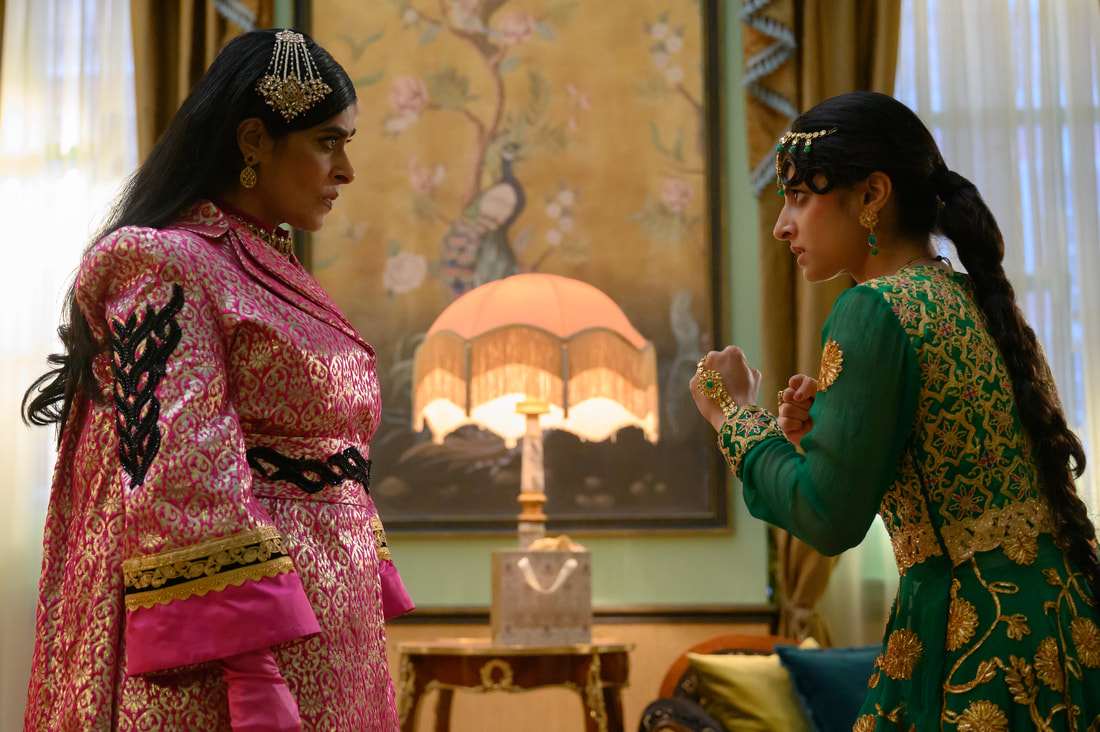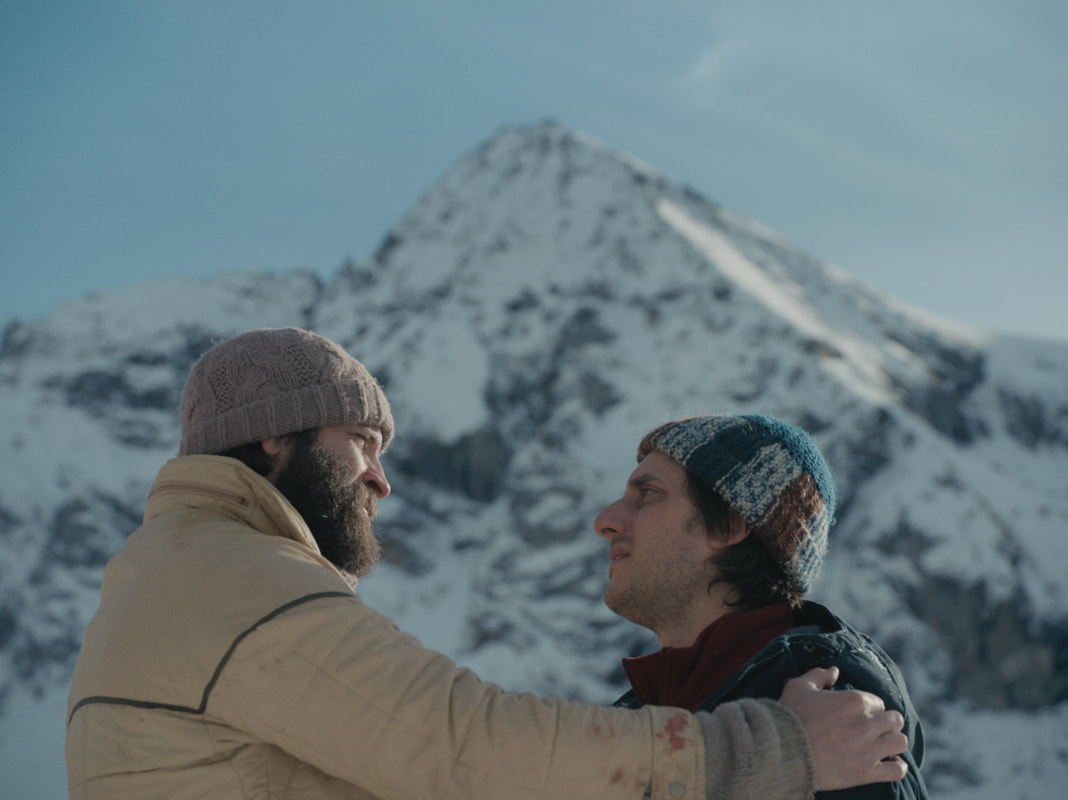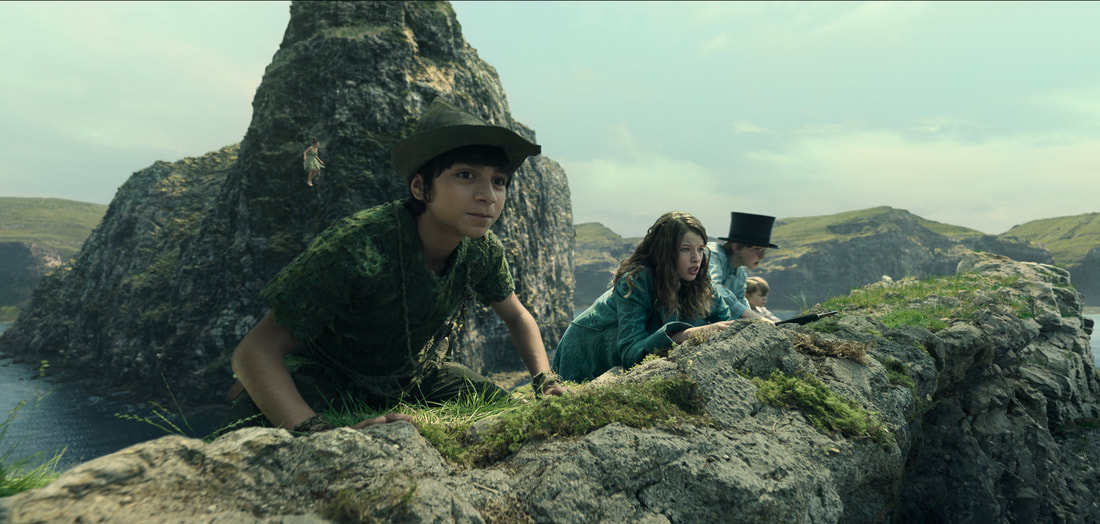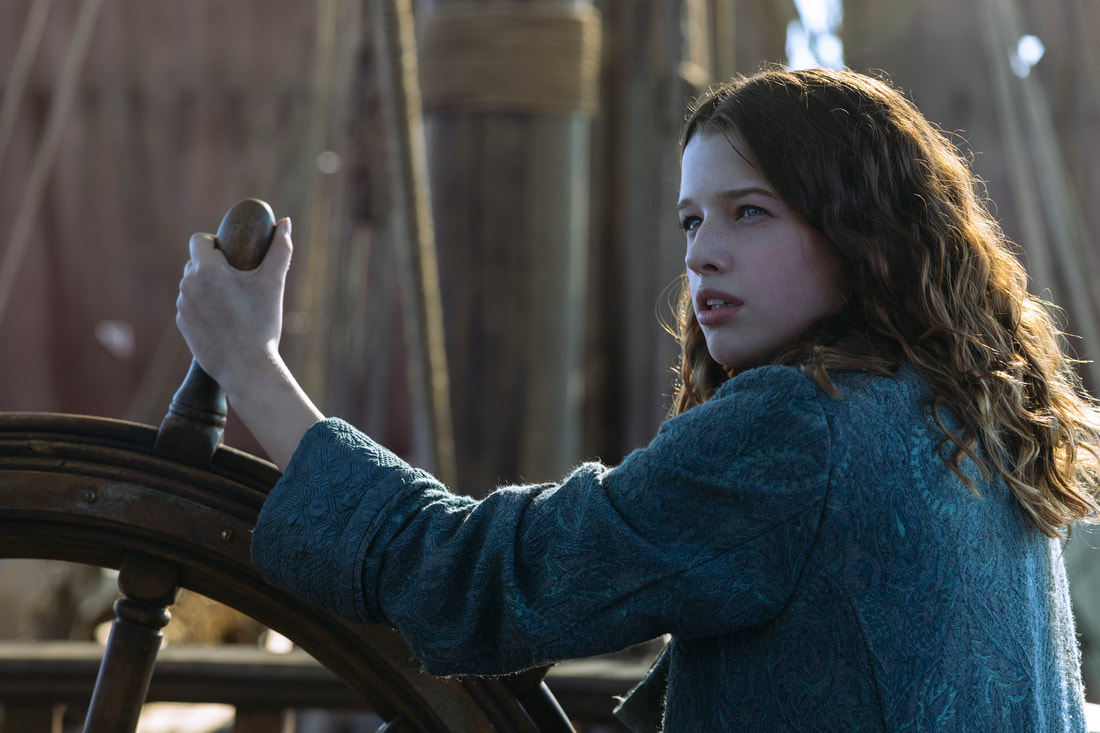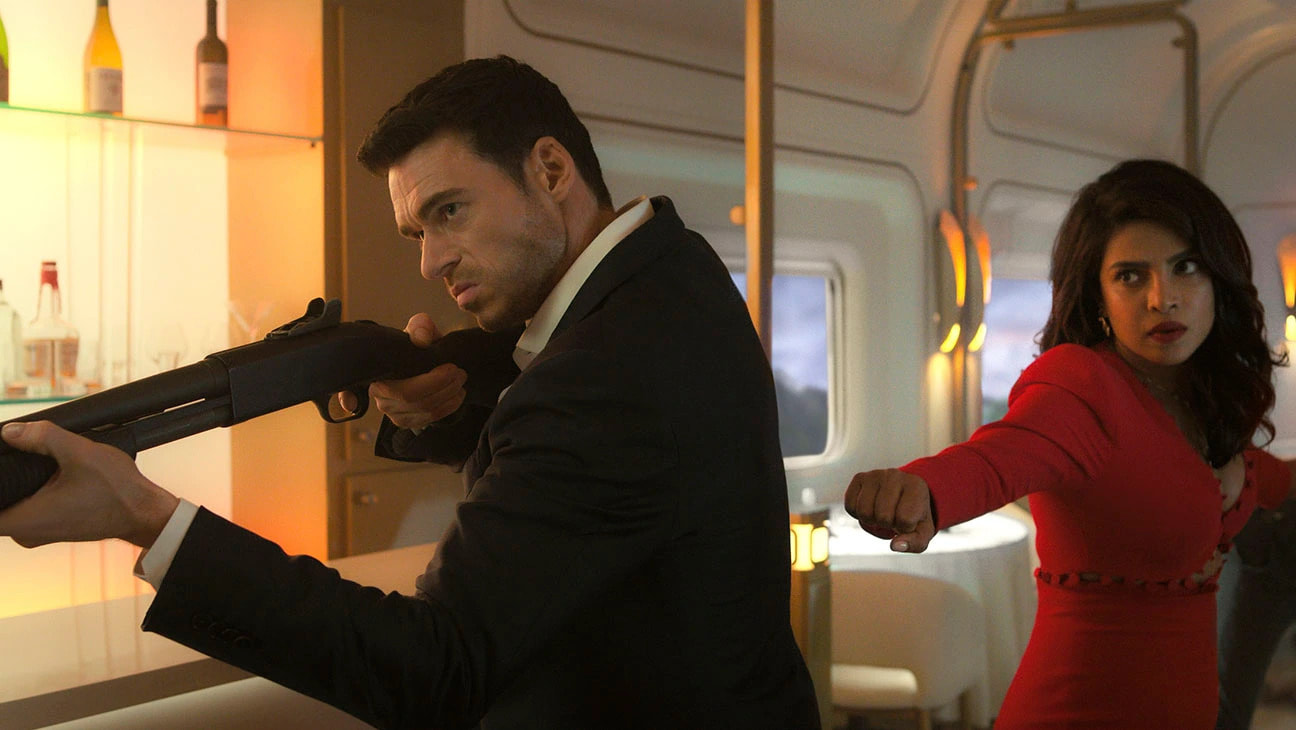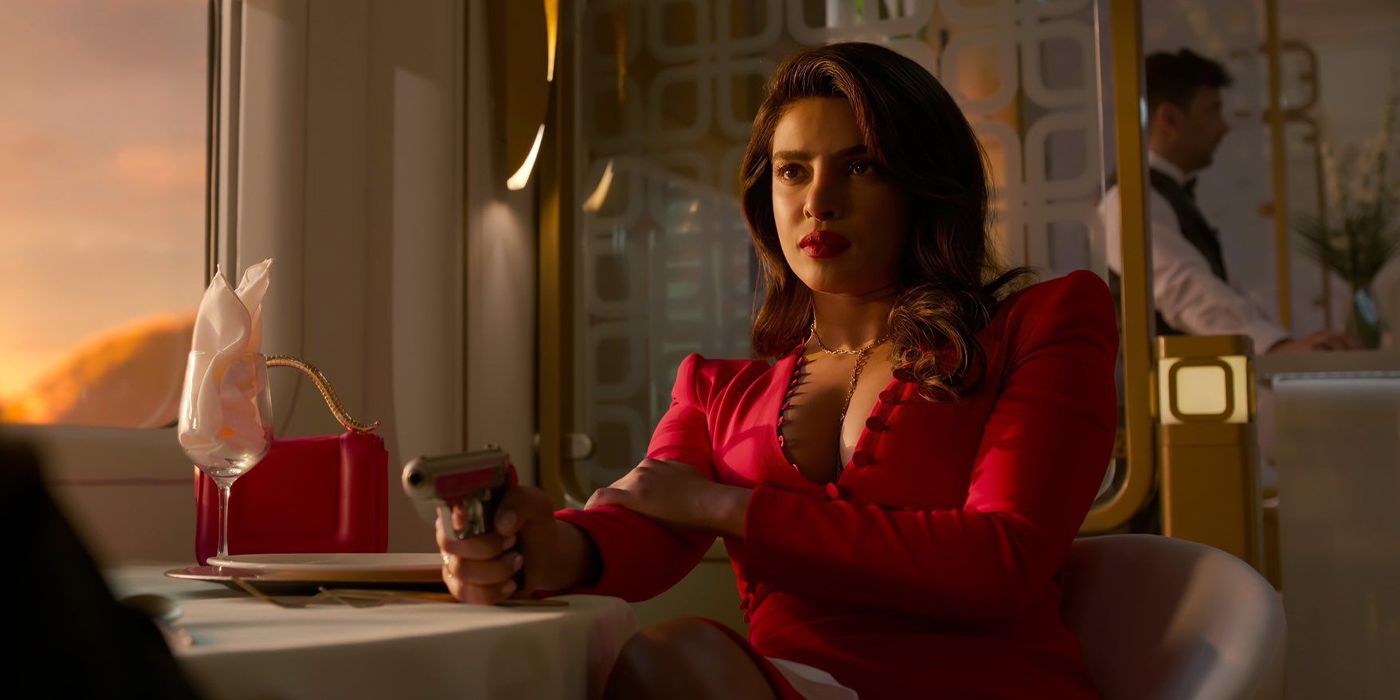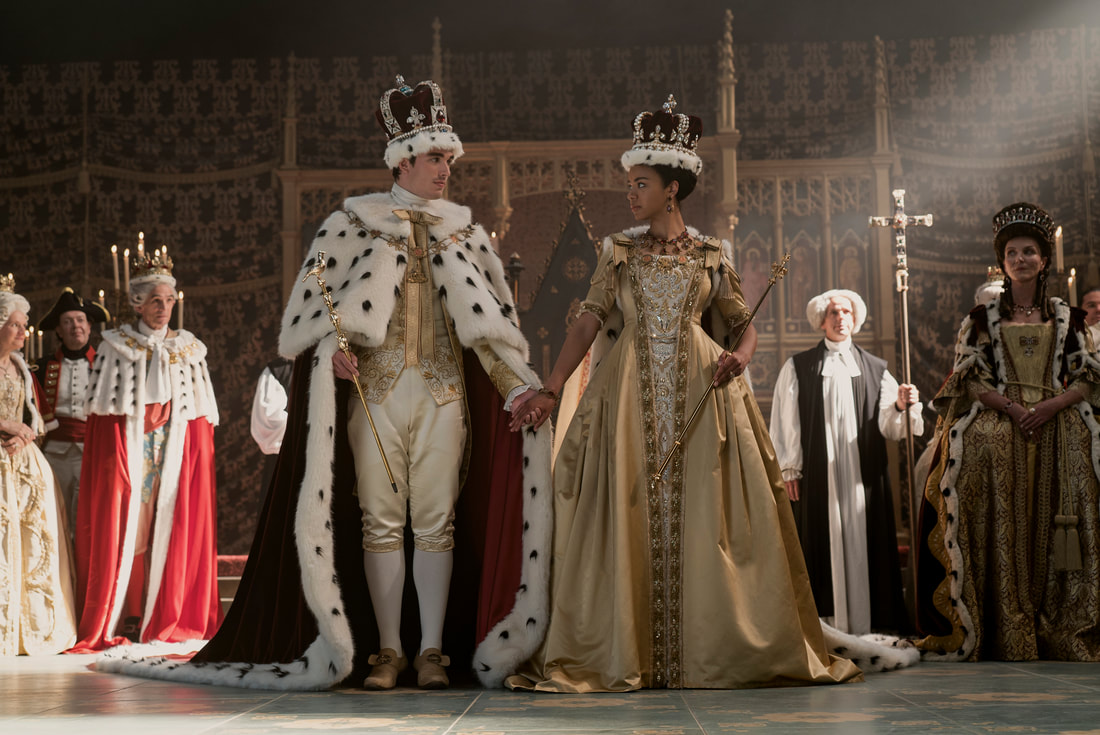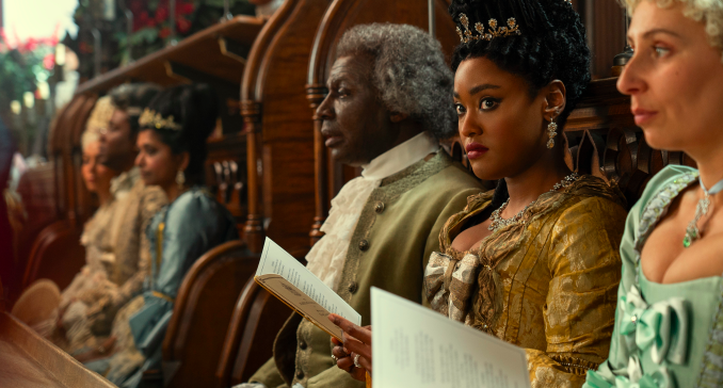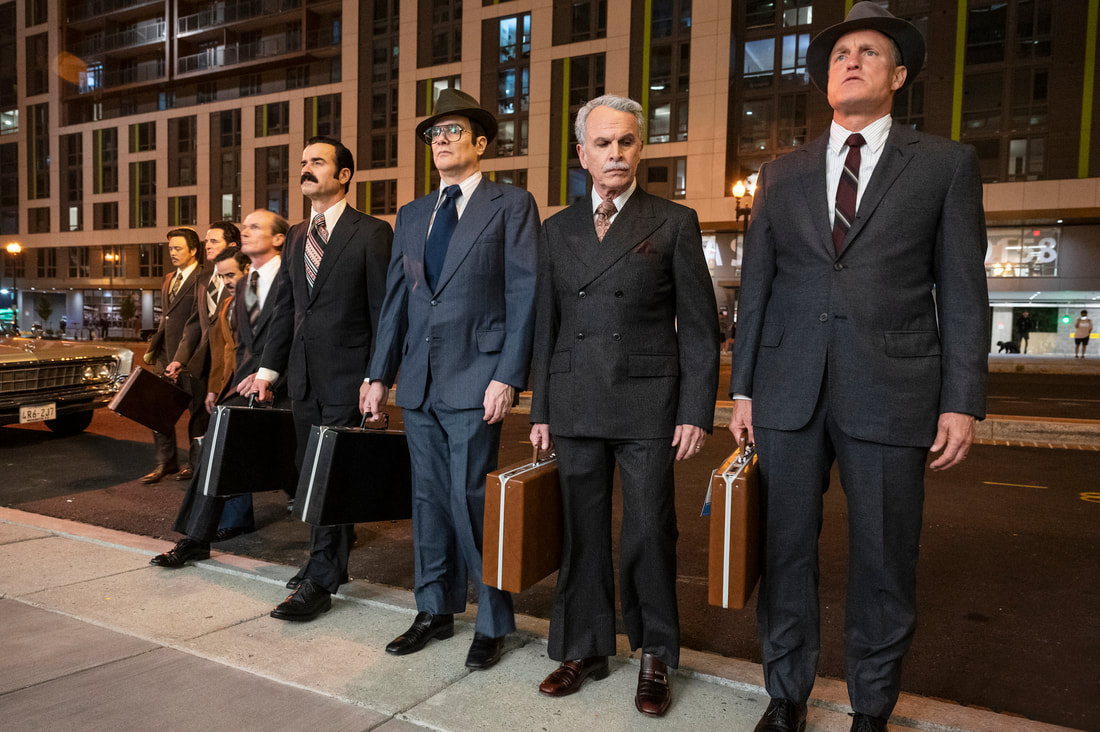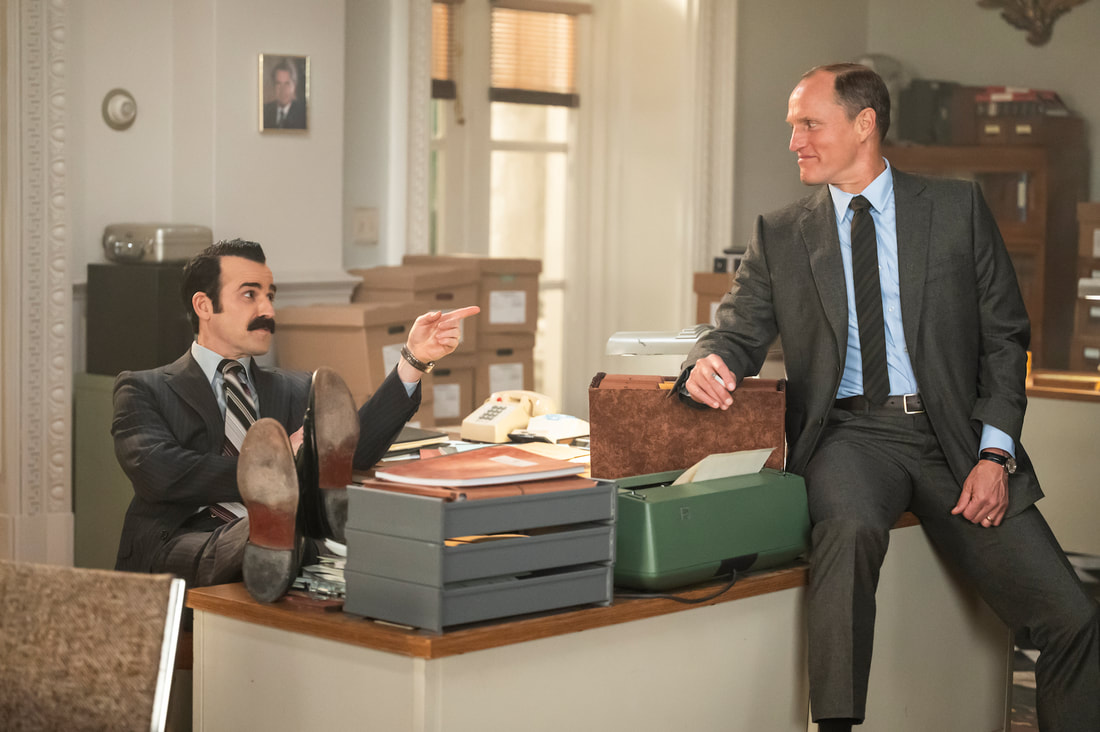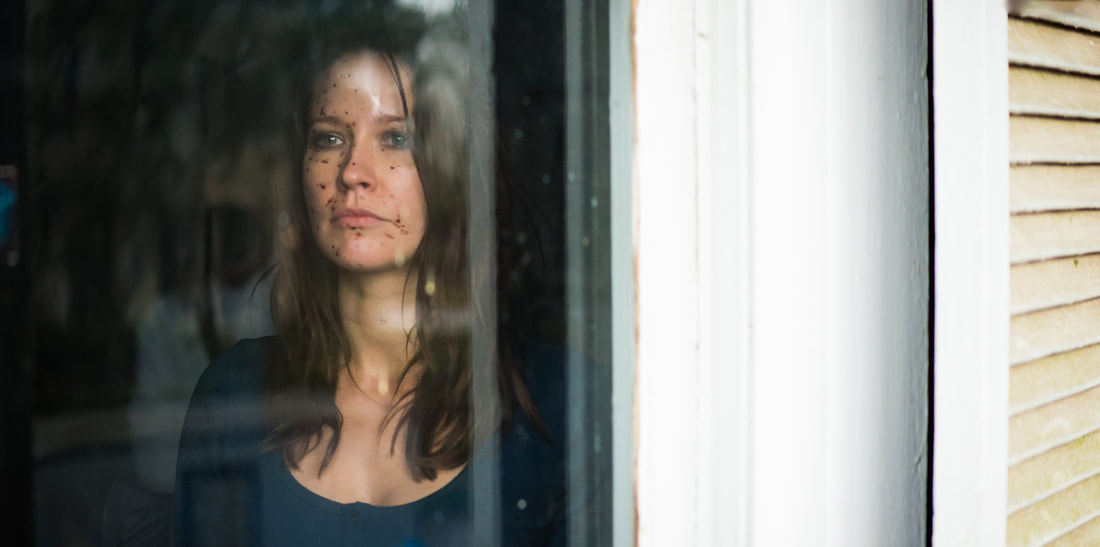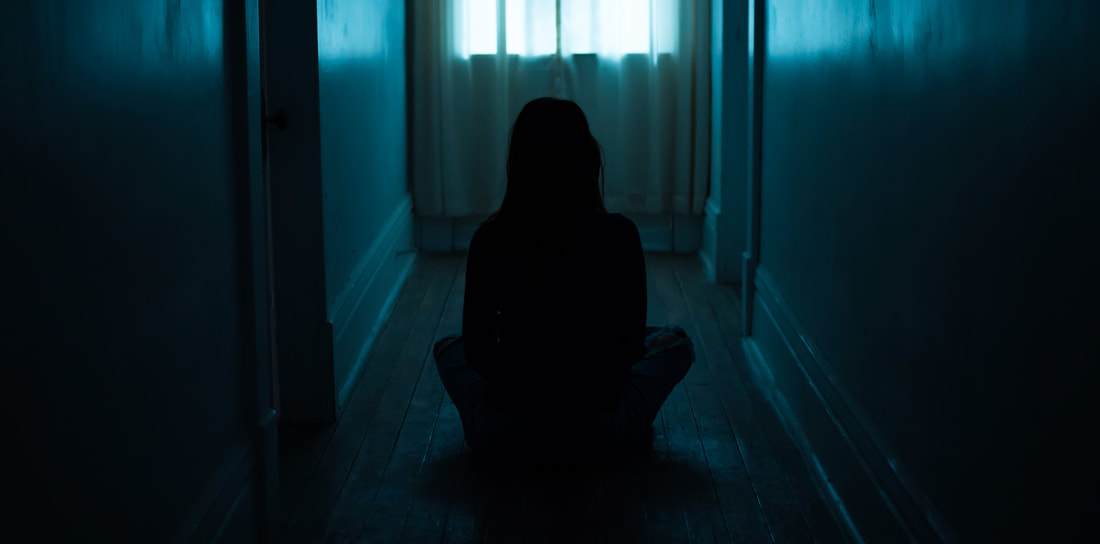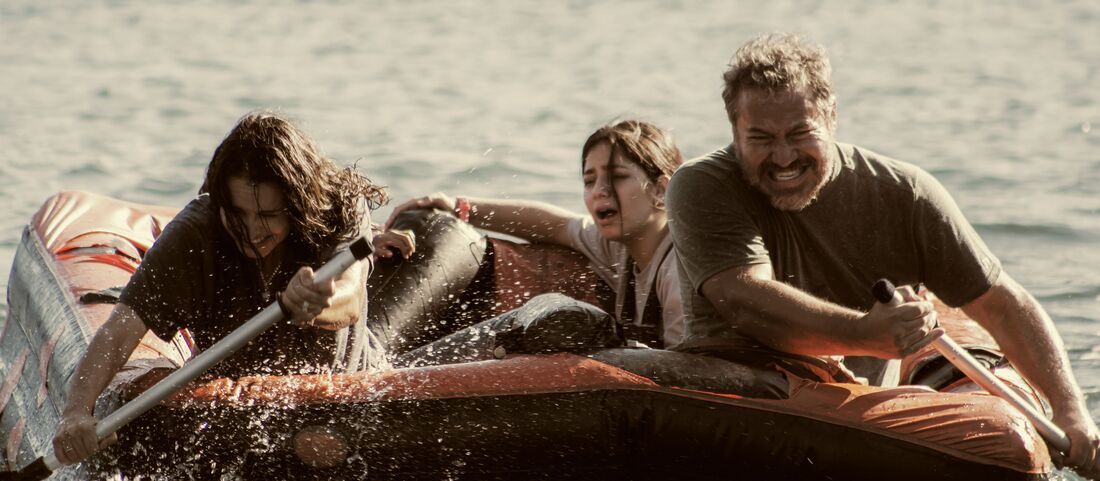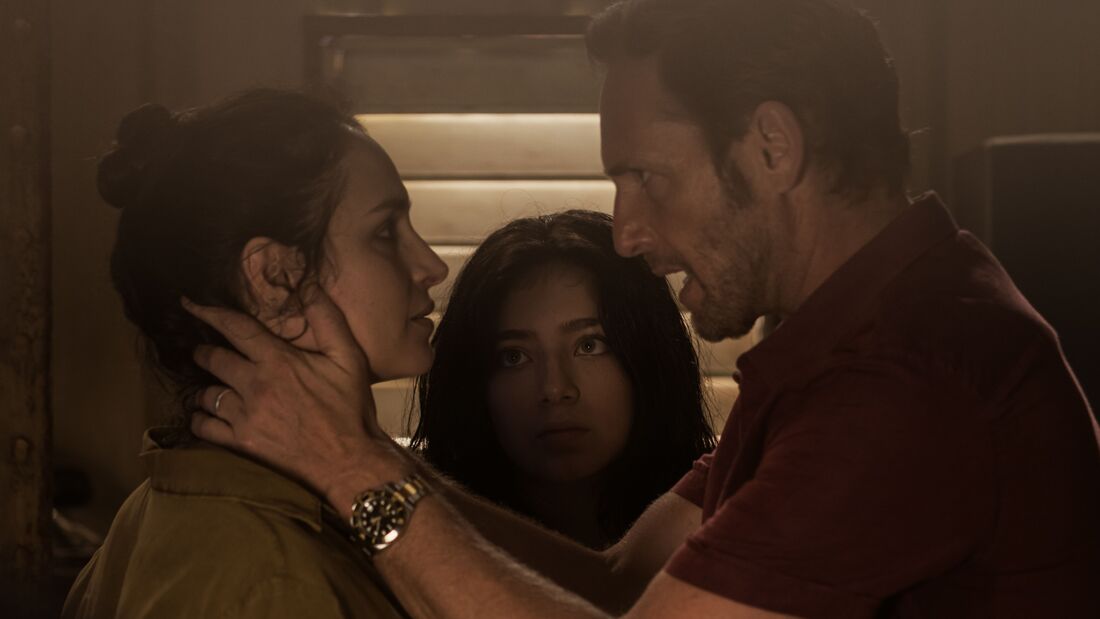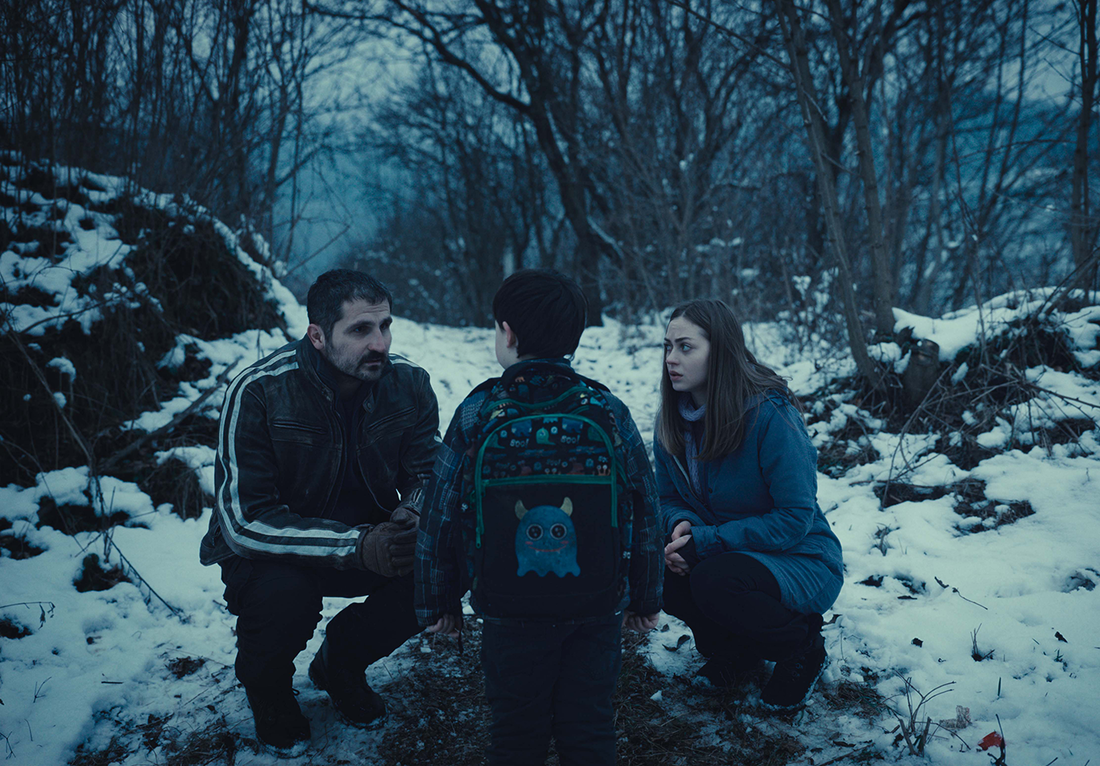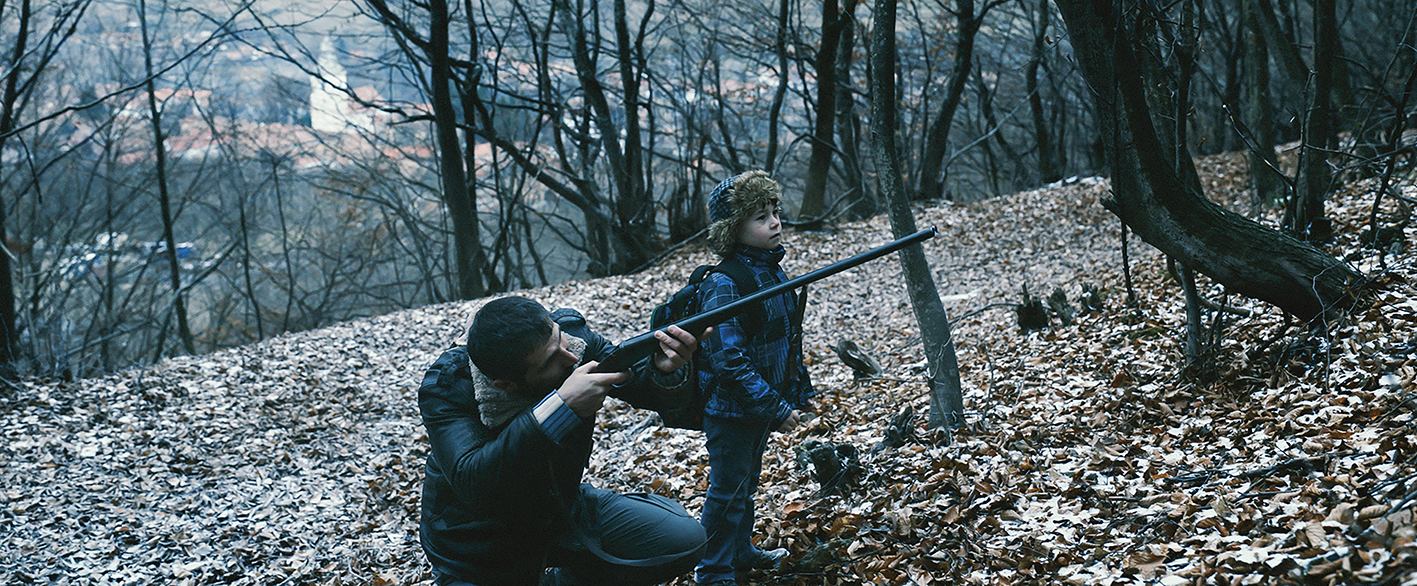|
Review by Sean Boelman
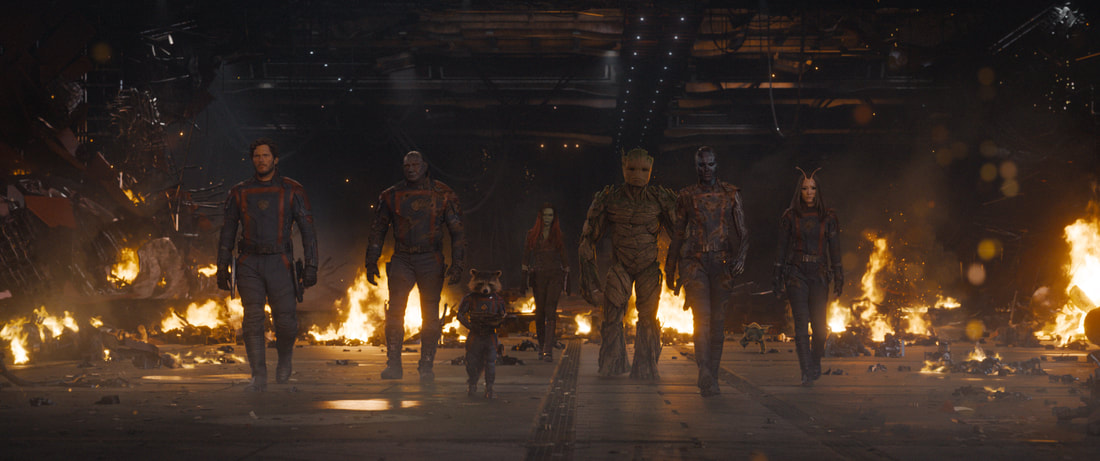
(L-R): Chris Pratt as Peter Quill/Star-Lord, Dave Bautista as Drax, Rocket (voiced by Bradley Cooper), Zoe Saldana as Gamora, Groot (voiced by Vin Diesel), Karen Gillan as Nebula, and Pom Klementieff as Mantis in Marvel Studios' Guardians of the Galaxy Vol. 3. Photo courtesy of Marvel Studios. © 2023 MARVEL.
Guardians of the Galaxy was a surprise hit, taking a relatively unknown Marvel property and turning it into one of the MCU’s most beloved. Now, nearly a decade later, we are going on our third outing with the unusual family unit. With visual and tonal shades of movies like The Fifth Element, Guardians of the Galaxy Vol. 3 is visually and thematically rich, but doesn’t quite leave the impact that fans are expecting or hoping for.
Teased as the final mission of the eponymous superhero team, Guardians of the Galaxy Vol. 3 follows the group as they set out on a quest to save one of their own. It’s surprising that — even though this is the finale of the trilogy — Gunn and co. decided to keep it rather intimate rather than having them battle a threat that holds the fate of the galaxy in its hands. Ultimately, the biggest issue with the film is that it struggles to find an effective tonal balance. Whereas the first movie — and to a lesser extent, the second — effortlessly mixed humor and heart, this finale of the trilogy attempts to take a darker tone to mixed results. Although many of the moments involving Rocket’s backstory are resonant, cutting them as flashbacks into an otherwise goofy adventure diminishes some of their impact. The real shining star of this film is Rocket Raccoon, which should come as no surprise considering that he is the focal point of the movie from a narrative and emotional standpoint. Cooper’s voice acting performance is genuinely brilliant here, bringing a level of emotion to the character that one wouldn’t expect considering how he was mostly known for wise-cracking in the other two entries.
As for the rest of the returners, Chris Pratt and Zoe Saldana really struggle here — their line delivery feeling surprisingly unnatural, Dave Bautista and Pom Klementieff are great, and Karen Gillan is doing her usual schtick. Will Poulter is added to the cast as Adam Warlock, and while he’s awesome in the role, the character feels somewhat wasted. And Chukwudi Iwuji is disproportionately great for how unevenly his role is written as the antagonist.
From a visual sense, this is likely the best Marvel has been in recent memory. The visual effects are polished and feel genuinely immersive rather than fake as many recent MCU outings have. There is also one sequence in the second act that has some of the most inventive and fun costuming and production design you will find in any film this year. And of course, the soundtrack has always been a big part of the Guardians of the Galaxy movies, and this one mostly delivers. This entry returns to some of the more populist roots of the first “Awesome Mix,” but one would be lying if they said it didn’t set the tone for a fun adventure. Sure, the needle drops are on-the-nose and a bit sentimental, but what else do you expect at this point? Guardians of the Galaxy Vol. 3 is a fun time, and while there are some moments that are absolutely brilliant, it doesn’t cohere as well as one would hope. It’s still good, but it never manages to capture the lightning in a bottle that was the first film. Guardians of the Galaxy Vol. 3 hits theaters on May 5. Rating: 4/5
0 Comments
Review by Adam Donato From the television director of Doctor Who and We Are Lady Parts, Nida Manzoor, comes her feature debut, Polite Society. It stars Priya Kansara as a teenage girl who aspires to be a stunt woman. Everything changes when her sister (played by Ritu Arya) starts seeing a man instead of pursuing her art career. This unlikely action comedy adds a stylized and violent twist to the typical family comedy. With a theatrical release, it will have to combat newcomers like Sisu, Are You There God? It’s Me, Margaret, Big George Foreman, and a re-release of Return of the Jedi. Does Polite Society have the personality to stand out among the field? For the uninitiated, this movie takes a wild turn, and it’s all the better for it. Obviously, the main character aspires to be a stunt woman, but the extent of the high-concept action is beautifully over the top. The story was working well when it was just the hijinks of her and her friends trying to break her sister’s relationship up, but the action aspect of the storyline is what maximizes the concept. The movie has so much personality, and the fight scenes just amplify these moments. The more ridiculous the moves get, the more fun that’s to be had. It definitely delivers on the action front. Kansara and Arya are so much fun together in this movie. They feel like genuine sisters, and their bond is the life source of the movie. Nimra Bucha — who some might recognize from the Ms. Marvel show — plays the mother of the husband-to-be and is a strong antagonistic force throughout. The standouts from the supporting cast were the friends trying to help break up the couple. Seraphina Beh and Ella Bruccoleri are the funniest characters in the movie. The three friends have ample chemistry and make this venture as fun as can be. The family dynamic is well developed, especially the mother, as she has to deal with the social pressures from the lack of success from her daughters.
Polite Society is a movie that deserves to be seen in theaters. It’s more narratively competent than most of the franchise blockbuster fare cluttering the movie theater these days. Nida Manzoor has a bright future, and it will be exciting to see what she tackles next. For an original movie written and directed by a first-timer to be this enjoyable is impressive. It’s got equal parts good action, likable characters and funny moments. This is sure to be a crowd-pleaser if it garners any attention at the box office. Be sure to check this one out in theaters while it lasts. Polite Society is now playing in theaters. Rating: 4/5 Review by Joseph Fayed The Eight Mountains had its premiere at Cannes last year, where it won the Jury Prize. To some degree, I understand why it would have been awarded that honor. But for a film that deals with the passage of time, there were parts of this long-term friendship that should have been left on the cutting room floor. Pietro is a young boy who goes on holiday to the Italian Alps with his parents. While there, he meets Bruno, a boy around his age who is working on his family's farm. The two begin a friendship, but as Pietro begins school, the two fade apart. Many years later, after Pietro's father dies, he discovers he has inherited an old shack in the village. He also learns his father grew close to Bruno, who agrees to help him transform the shack. The story is divided into three acts: one recounting the protagonist's childhood, an update on their teenage/college years, and their adulthood when they reconnect. Their adulthood gets the most focus, showing what has changed for the two men over the years. One course of action the film takes is to highlight the connection to the Alps Bruno has always had, while showcasing what Pietro has made for himself in the city. While younger and older versions of the two leads are shown heavily, there is a significant gap in flashbacks showing how Bruno stayed put in the village in his teenage years. The film is slowly-paced and lets the two catch up as adults, so not spending enough time on this period in Bruno's life doesn't make sense. The last act shows how Bruno and Pietro deal with their lives going in opposite directions. One positive thing the clumsy narrative did right was set up a fitting conclusion. This is prompted by the supporting characters, who don't have much to do or say on their own, allowing the two leads to become more developed. Other than that, it seems roughly half of the film is long takes of the Italian Alps and characters climbing them.
The Eight Mountains is the story of friendship lost to time and the Alps. Much like the Italian Alps, it takes a long time to reach its peak. Its protagonists are simply not interesting enough to watch two and a half hours of. It wraps itself up well, but that is only after quite some time of going back and forth between narratives that would have worked better in different films. Maybe the jury at Cannes last year was too in awe of the impressive cinematography, I certainly was at various points while watching this. The Eight Mountains is now playing in theaters. Rating: 2/5 Review by Dan Skip Allen Disney has many iconic characters in their catalog — Cinderella, Snow White, and the Seven Dwarfs, and Pinocchio are among the top. Just below them is Peter Pan. The first Peter Pan movie came out in 1953. Ever since, many variations of this beloved Disney animated character have come out in theaters. One was a more existential version from Benh Zeitlin. Another had Hugh Jackman playing Captain Hook in Pan. Peter Pan & Wendy might be the most faithful adaptation of this beloved children's tale yet. Wendy Darling (Ever Anderson) is a big sister to her younger brothers. She plays games around the house, but when she breaks an antique, her father (Alan Tudyk) gets mad at her and threatens to send her to boarding school. While sleeping, she dreams of a character she used to tell stories about to her younger brothers: Peter Pan (Alexander Molony), who is actually a real boy. He and his faithful friend Tinker Bell (Yara Shahidi), a fairy, come to visit her and take her off to Neverland, where she meets their friends, the Lost Boys, and the villainous Captain Hook (Jude Law) who wants to rid Neverland of children. David Lowery isn't a stranger to children's films. He directed the remake of Pete's Dragon starring Robert Redford in 2016. He also has a past in the fantasy genre as he made a great film The Green Knight in 2021. Add these two films together, and you have Peter Pan & Wendy. It's a more lighthearted fantasy film without the animated dragon, and throws in instead a little pixie dust and an alligator. He understands his audience and the material he's adapting. It's one of the better live-action Disney remakes, and it perfectly fits on Disney+. With all these Peter Pan films — animated or otherwise — there are many set pieces. Sure, in live-action, you have to use strings and stages to film some of these action sequences and flying moments. They look very authentic, though. The backdrop of Ireland is a perfect fill-in for Neverland and the various locations like the woods where the Lost Boys live. The cinematography is gorgeous, wherever it is — in houses, on ships and out in the wild of woods, and on the water. This is a beautiful movie by any standards. The Peter Pan story has always been an analogy for growing up. Parents who are busy with their lives don't have time for their children, so they wish they would grow up and go out into the world. The problem with that is that kids need to have these experiences of playing, reading books, and doing fun things, so they can remember what it was like to be that age. As adults, they have those fond memories. I needed my childhood, so I could be prepared for the difficulties adulthood would bring me. This story reminds me of that, and I'm sure it will for many others, too.
Besides the cinematography, another craft that is good in the movie is its score by Daniel Hart. The score is so adventurous and boisterous. It reminded me a lot of the work of my favorite composer, John Williams. It has various arcs, some more sinister and others wide open. The action sequences and scenes flying through the skies showed the various levels and places Hart could go with the music in the film. Jude Law is an Academy Award-nominated actor. He has played many roles in his career. A villain is a rarity, though. Not many besides Yon-Rogg in Captain Marvel come to mind. One of the biggest villains in film lore is Captain Hook. It was perhaps most iconically and brilliantly played by Dustin Hoffman in the Steven Spielberg film Hook in 1991. He was very over the top as this character. Law, on the other hand, played Captain Hook more as the character in the ‘53 animated classic. He was more nuanced, but had his sinister moments. He did embrace the evil, but also tried to be more subtle and emotional in his approach to the character. Peter Pan & Wendy is the best version of this classic story based on J. M. Barrie's book since Hook for my money. The film's cinematography showed this world so beautifully. The indoor and outdoor scenes alike come to life with the camera work from Lowery and co. The cast full of mostly newcomers, the children, and established pros like Shahidi, Tudyk, and most notably Jude Law as Captain Hook are all fantastic. The thing this movie gets the most right, though, is the story, what it means, and how it never gets old. Disney has been a bit hit and miss with its live-action remakes, but this is one of the better ones. People of all ages should enjoy this version of the Disney classic tale. Peter Pan & Wendy is now streaming on Disney+. Rating: 3.5/5 Review by Camden Ferrell Citadel is the new television series from Amazon Prime coming out this spring. It is the second most expensive television show ever made, only behind the Lords of the Rings show that Amazon made as well. Already renewed for a second season ahead of its premiere, this is a high budget show that is unimaginative and sluggish thus far, wasting a rather talented cast and an unfathomable amount of money. Citadel is a global spy agency that has fallen. The agents have had their memories wiped, and a new agency is coming to power. Mason and Nadia are two agents who must remember who they are in order to take down this new threat in a worldwide adventure full of action. The premise isn’t particularly creative and feels like a standard spy thriller, but it still had potential to be riveting with the right treatment and execution. From the start, the show makes no attempt at ambition, reveling in mediocre writing and setup that doesn’t feel inspired at all. The dialogue feels overly expository and full of cheap banter that you’ve probably seen in plenty of movies in the past. The show has also failed to subvert expectations, merely following the path of least resistance. This creates a story that is more predictable than one would like. One of the few things interesting about this show is its cast. It boasts a pair of charming and visually pleasing leads in Richard Madden and Priyanka Chopra Jonas. While both are decent enough in their individual scenes, they have decent chemistry together that can help the show get past its slower and forgettable moments. Stanley Tucci and Lesley Manville play smaller supporting roles in the show, but both bring their reliable acting chops with them. It’s nothing remarkable, but it’s a silver lining in an otherwise mediocre and subpar spy thriller.
When a show of this nature lacks in its narrative, one would hope that it compensates for this with exhilarating action. There are a handful of decent set pieces in these episodes, but there isn’t anything that really justifies the price tag this show carries. The action isn’t as dynamic as you’d expect from a talented cast and crew, but it should still moderately quench viewers’ thirst for combat. When all is said and done, one can’t help but feel disappointed by Citadel. It’s a genre that is ripe for energy and subversion, but it doesn’t really deliver on either. Madden and Chopra Jonas are decent enough leads, but it can’t make up for the lack of quality material they’ve been given. It’s not a bad show by any means, but it is undeniably forgettable. It’s a show that people might forget about by the time season two rolls around. Citadel premieres its first two episodes on Prime Video on April 28 with new episodes premiering on subsequent Fridays. Three of six episodes reviewed. Rating: 2.5/5 Review by Tatiana Miranda In the hiatus between seasons of Bridgerton comes the limited Netflix series Queen Charlotte: A Bridgerton Story. Similar to its source material, Queen Charlotte is centered around the romantic exploits of the people of the ton, only the story is set about 40 years earlier. As the title suggests, the series recounts the fan-favorite Queen Charlotte's romance with King George III. Much of the series also depicts the evolution of the ton in terms of the integration of different races, which had been mentioned in Season 1 of Bridgerton, yet never properly developed. Loosely inspired by the real-life king and queen of the UK, Queen Charlotte and King George III are not necessarily the focus of Bridgerton. In the popular Netflix series, Queen Charlotte is the bossy but loveable leader of the ton. Meanwhile, her husband is only mentioned in passing or shown infrequently. His absence is attributed to his mental illness, which is inspired by rumors of the real king. In this spin-off, fans get to see the beginning of their relationship and understand more of Charlotte's personality and motives. As mentioned briefly in Season 1, the marriage between Charlotte and George signaled the introduction of titles — such as Lord and Lady — for people of color in the ton and, therefore, a sense of integration. While it makes sense to establish the fact that the world wasn't always as progressive, it puts Queen Charlotte into a narrative box that it doesn't excel at developing. Because the series jumps straight into the marriage between George and Charlotte, it doesn't give a lot of time to establish the ton's layout before what George's mother refers to as "The Great Experiment." Although the topic of racial prejudice is discussed in relation to Charlotte's interracial marriage and Lady Danbury's entry into polite society, a lot of factors, such as Charlotte's heritage and Lord and Lady Danbury's wealth, are contrary to the mistreatment they face from the ton. Since it is meant to be a big deal for the ton and a major driving factor in Lady Danbury's backstory, its lack of development is distracting. King George's "madness" is another predominant part of the series that lacks proper development. While the real King's mental health issues are undiagnosed, many professionals suggest that he may have had manic episodes as a result of bipolar disorder or porphyria. Queen Charlotte takes more creative liberties, instead giving him episodes more closely resembling schizophrenia or dissociative identity disorder.
This change was likely made to add more narrative hardship to Charlotte and George's love story, similar to Simon's and Antony's parental issues and trauma from Seasons 1 and 2 of Bridgerton. Because of its heavily narrative use, the depiction of George's mental state comes across as an unrealistic and poor representation of mental illnesses. When it comes to Bridgerton, Queen Charlotte feels more like an intermission rather than a part of the narrative, as its development of secondary characters will likely have no impact on the plot of the upcoming third season. Many flash-forward scenes to the present day of Bridgerton fall flat in comparison to the romance between Charlotte and George. Overall, Queen Charlotte excels in developing the background of several key characters from the main series, yet it fails to properly develop the world and the future of these same characters. Queen Charlotte: A Bridgerton Story premiers on Netflix May 1. All six episodes reviewed. Rating: 2/5
Review by Sean Boelman
The Watergate scandal might not exactly be what one associates with comedy — dramas like All the President’s Men being the more common storytelling approach — but White House Plumbers is refreshingly in its humor. Although the HBO show might not dig as deep as one would hope, it’s certainly well-made and nothing short of entertaining.
The series tells the story of the “White House Plumbers” and its leaders, E. Howard Hunt (Woody Harrelson) and G. Gordon Liddy (Justin Theroux), who were the masterminds behind the attempted Watergate burglary, and were responsible for bringing down the Presidency they wanted to protect. This is one of the most public blunders ever made in politics, but this show manages to keep things fresh by showing a perspective we might not have known. Surprisingly, the series is a mere five episodes long, when there was much more story to tell. The first two episodes focus on other operations of the Plumbers — such as the burglary of a psychologist’s office in an attempt to discredit Pentagon Papers whistleblower Daniel Ellsberg — and the final three focus on Watergate and its aftermath. It could have been interesting to see even more of the Plumbers’ activities. One of the most unique things about this show is that it takes a comedic, farcical approach to a topic often treated very seriously. It makes sense — there is an absurdity and ridiculousness to these events — and the tongue-in-cheek nature lends a satirical feel to the series. The creators are trying to create a parallel between what happened in the 1970s and what is happening today, and while it doesn’t always work, it’s an absolute zinger when it does.
The show arguably works best as an acting showcase for Harrelson and Theroux who are both fantastic. Theroux is hilarious as a Nazi sympathizer, and Harrelson is perfectly duplicitous and sly. Although the cast also has some other great actors — Lena Headey, Domhnall Gleeson, Ike Barinholtz, and more — Harrelson and Theroux just have such a commanding presence that no one else gets a chance to shine.
The character work is also really intriguing, because these are characters that aren’t particularly likable. No matter what side of the political spectrum you fall on, the Watergate scandal is one of the most despised events in history. Still, the show turns Harrelson’s Hunt into a character who is much more nuanced and even pitiable, albeit thoroughly flawed. David Mandel (Veep) directs the show in its entirety, and does an excellent job of giving the show a feeling of time and momentum. The production design and costuming are strong recreations of the 1970s. And the operation scenes — particularly the Watergate burglary — blend comedy and intensity quite well. White House Plumbers brings an interesting perspective and comedic tone to events that everyone knows and hates. Although it could have spared to be an episode (or three) longer, sharp writing and strong performances by Harrelson and Theroux keep the show entertaining. White House Plumbers debuts May 1 at 9pm ET/PT on HBO and HBO Max, with new episodes airing subsequent Mondays. All five episodes reviewed. Rating: 4/5 Review by Adam Donato Thomas Marchese has only previously directed a documentary feature called Fallen and a couple short films, but makes his narrative feature debut here with From Black. Anna Camp stars as a troubled woman grieving over her lost son. John Ales co-stars as a group therapy leader who presents this troubled woman with an opportunity to get her son back. Sacrifices and creepy occurrences ensue as Camp tries to maintain her own sanity. From the horror faithful streaming service known as Shudder, here comes another demon possession romp. Horror in April is welcome, as the month of October doesn’t have a monopoly on scary. Even in theaters, Ari Aster’s latest Beau is Afraid graces the screen. Anyone rewatching his other two movies as of late will certainly find direct comparisons from Hereditary to From Black. That's not to say Hereditary has the most original story, but it stands out due to its direction and performances. All due respect, but Marchese and Camp are no Aster and Collette. Still, for a horror-specific streaming service movie, From Black got the job done. Most will recognize Camp from her roles in Pitch Perfect and The Help. Seeing as it’s been about a decade since these roles, it’s nice to see her get an opportunity to lead again, even if it’s on such a small scale. Her performance here certainly gets the job done. The character is also dealing with drug addiction which adds a physical element to her performance. She’s so miserable and on edge throughout, making for a stressful experience. It's hard to see this convincing anyone she needs to lead on the big screen, but she comes to play here and the movie is all the better for it.
Marchese should mark this venture off as a win because this movie was a solid outing. There is some scary imagery here. The demon that is lusting after the protagonist is used sparingly and not shown outright to allow the audience’s imagination to fill in the dots. While the story may be run of the mill, the main character never goes far enough off the deep end to the point she’s not relatable anymore. The last scene of the movie ends the experience on a high note that might convince viewers this is an above average horror flick. Maybe chop off 10 of the 100 minutes of the runtime because at the end of the day, simplicity is what this movie has going for it most. Horror fans and Shudder go together like demons and grieving mothers. From Black delivers solid scares despite its overly familiar concept. Camp and Marchese should be proud of this latest entry and build upon it. Check this one out on Shudder. From Black streams on Shudder beginning April 28. Rating: 3/5 Review by Cole Groth Good shark movies are incredibly hard to come by. I’d argue that it’s just as hard to find a shark thriller that isn’t terrible, and that’s where The Black Demon comes into play. With a false promise of a terrifying shark but a surprisingly interesting script, this film isn’t quite good, but it’s refreshingly not bad. Josh Lucas stars as an employee of a massive oil company who takes his family on an idyllic vacation in Mexico. Things quickly turn sour as his family gets stranded on an oil rig with a ferocious shock who tries its all to protect its territory. Over the 100-minute runtime, they have to find ways to survive the threat, which grows deadlier with every passing minute. The immediate biggest problem with this is that the shark doesn’t appear in the film very much. Throughout the whole runtime, it appears for a collective of maybe two minutes, making it feel like a very underwhelming threat. Characters spend most of the time talking about how dangerous the “black demon” is rather than actually showing it to us. When the shark does appear, it’s menacing, but it’s mostly too little too late, and audiences will feel frustrated by the lack of its titular villain. Toward the movie’s end, audiences should be able to piece together that the “black demon” that everybody refers to isn’t a shark. Writers Boise Esquerra and Carlos Cisco take the villain to an environmental approach, with the demon being the product of the oil rig Paul works on. Environmental metaphors can be done well, and while this one subverts the shark thriller genre, it’s too on the nose to be anything but silly.
As far as acting goes, this is surprisingly solid. Josh Lucas, Fernanda Urrejola, and Julio César Cedillo give it their all, and the script is quite good from a dialogue perspective. I was expecting to cringe throughout most of the runtime, and while there are still a few eye-rolling moments, it’s mostly relegated to the expository stuff at the beginning. While there are some shining moments in The Black Demon, it doesn’t blend very well. The lack of any shark action can be somewhat balanced out by an otherwise decent drama, but it doesn’t help that it’s a rather dull experience. There’s not much of a reason for this to be longer than 90 minutes. It’s a very simple premise that feels stretched out for no reason. We’re told way too much through sloppy exposition when any viewer truly wants to see action between Paul and the shark. It’s not quite a bad experience, but those expecting anything more than a moderately entertaining time will be disappointed. The Black Demon releases in theaters starting April 28. Rating: 2.5/5 Reviewed by Jonathan Berk Writer and director Cristian Mungiu’s new film R.M.N. opens with a young boy walking alone in the woods. It’s clear he sees something that bothers him, and he retreats back the way he came. The film then jumps to a sheep slaughterhouse and introduces the audience to Matthais (Marin Grigore). He violates work rules to take a phone call that appears to be an emergency. One of his supervisors calls him a "lazy Gypsy," and Matthais retaliates with a headbutt. Realizing this job is over and not wanting to risk being arrested for assault, Matthais flees Germany to return to his small hometown in Transylvania. In this village, the third major character, Csilla (Judith State), is the manager of a bakery in dire need of employees to qualify for government funding. The locals in the village either left for work or don’t feel the bakery paying minimum wage is worth their time, so Csilla and the owner are considering taking employees from another country. The tensions about who belongs are initially underneath the surface. Hungarian, Romanian, German, French, and English are spoken in the film — and sometimes depicted in different color captions — demonstrating the multiethnic nature of the village. It’s when these “outsiders” arrive that the xenophobia and cultural tensions kick in. Mungiu’s style forces the audience to sit in these tense moments. He chooses static long takes, with the staging of the actors being the momentum of the scene, not the editing. There is one particular moment that is touted as being 17 minutes long and brings all the film's themes to the forefront. It is painfully uncomfortable to sit through, and the camera placement and staging of the actors in the scene make it even more so. In the forefront of the shot are Matthais and Csilla, whose relationship was extremely complicated during the film, but takes on several more layers in these moments. They’re surrounded by severely angry townspeople who are voicing their concerns about the Sri Lankan employees at the bakery. It is such an impactful scene that leads to the film's final moments.
R.M.N. is full of metaphors, which I usually appreciate. I have been unable to stop analyzing the various layers this film offers. While I often enjoy it when a movie sticks in my mind so much and makes me ponder what it was trying to say, I am finding this one to frustrate me more because of how many things feel uncertain. There are pieces left up for interpretation that severely change the events in the film, more so than the meaning that we can apply to it. It ultimately feels a little sloppy in the end, because I can’t discern what some characters' motivations were or what exactly leads Matthias on his wild chase through the city at the end. I even rewatched the last fifteen minutes to see if I missed a key element, but I found out I had not. Ultimately, the movie worked for me despite this, but it definitely took a hit for the way I felt at the end of my viewing. R.M.N is out in theaters on April 28. Rating: 3.5/5 |
Archives
April 2024
Authors
All
|
|
|
disappointment media
Dedicated to unique and diverse perspectives on cinema! |

